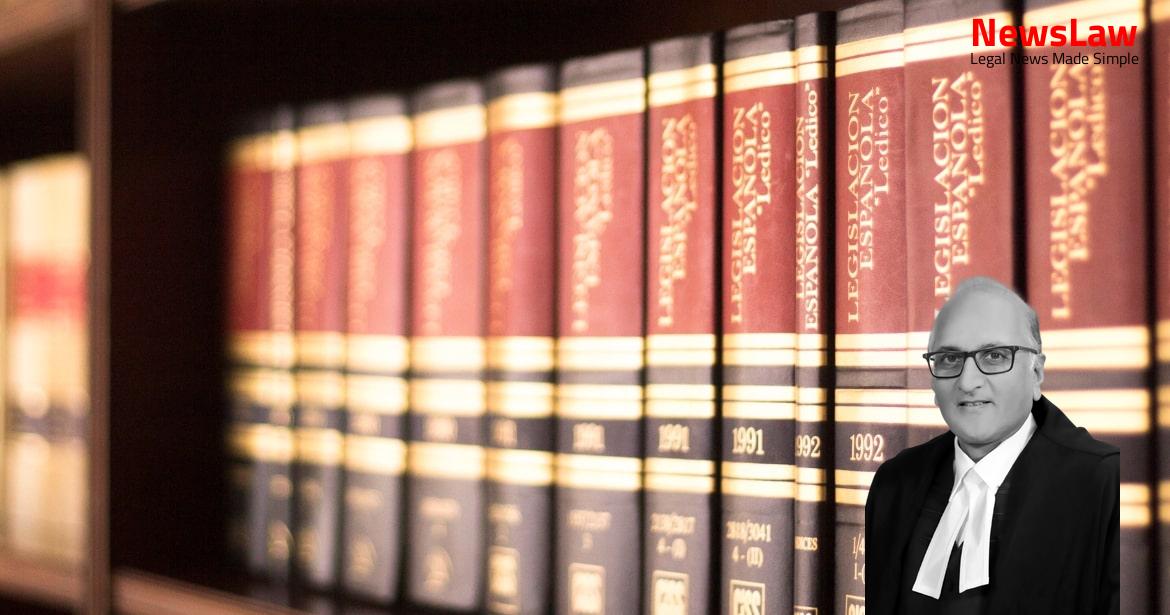Explore a legal case where the court’s analysis focused on the quality of evidence rather than quantity. The court classified witnesses, discussed the significance of reliable testimony, and highlighted the need for corroboration to establish facts. This case sheds light on the meticulous process of evaluating evidence in legal proceedings. Follow our journey into the world of legal analysis and the pursuit of truth in witness testimonies.
Facts
- The Trial Court convicted Mahendra Singh, Pritam Singh, Santosh, Shambhu Singh, and Lakhan Singh for offenses under Section 148, 302 read with Section 149 of the IPC.
- They were sentenced to one year rigorous imprisonment for the offense under Section 148 IPC and life imprisonment with a fine of Rs. 5,000 each for the offense under Section 302 read with Section 149 IPC.
- The High Court of Madhya Pradesh, Bench at Gwalior, dismissed the appeal against the conviction.
- The deceased was taken to the Police Station on a tractor hired from Veer Singh.
- The accused persons allegedly assaulted the deceased due to previous enmity.
- Upon returning to the scene, Bhagat Singh was found dead.
- The appeals have been made in light of these events.
Also Read: Presumption of Genuine Endorsements in Cheque Case
Arguments
- Mr. Nagamuthu submits that the conviction of the appellants is based solely on the testimony of Amol Singh (P.W.6).
- He argues that the testimonies of other witnesses contradict the possibility of Amol Singh witnessing the incident.
- Mr. Nagamuthu raises doubts regarding the authenticity of the FIR filed in the case.
- Corroboration sought from medical evidence in the form of Post-Mortem Report
- Minor contradiction in witness testimony not a ground to disbelieve truthfulness
- Citing judgments in support of not discrediting witness testimony due to minor inconsistencies
- Conviction of appellants based primarily on testimony of Amol Singh (P.W.6)
- Defense claiming reliance on testimony of Amol Singh (P.W.6) by Trial Court and High Court was justified
- Maxim ‘falsus in uno falsus in omnibus’ not accepted in India, truth to be separated from falsehood in witness testimony
- Delayed FIR creating doubts on trustworthiness of prosecution case
Also Read: Medical Negligence and Compensation: A Landmark Decision
Analysis
- Court emphasized the importance of the quality of evidence over the quantity.
- Quality of evidence is key in proving or disproving a fact according to the court’s opinion.
- Established rule of law that courts focus on the quality, not the quantity, of evidence.
- The Court classifies witnesses into three categories: wholly reliable, wholly unreliable, and neither wholly reliable nor wholly unreliable.
- Conviction or acquittal can be based on the testimony of a single witness if found reliable, but not if the witness is ‘wholly unreliable’.
- The evidence of Amol Singh (P.W.6) falls under the ‘wholly unreliable’ category.
- Corroboration was sought from defence witnesses as well, following the same treatment as prosecution witnesses.
- The testimony of Mahendra Singh (P.W.3) and Akhe Singh (P.W.4) indicates that Amol Singh (P.W.6) could not have witnessed the incident.
- Medical evidence could only establish the death as homicidal but could not corroborate Amol Singh’s account of witnessing the incident.
- The Court must be circumspect and seek corroboration in material particulars from reliable testimony, direct or circumstantial, especially in the case of witnesses who are neither wholly reliable nor wholly unreliable.
- Motive alone cannot sustain a conviction
- Prosecution failed to prove the case beyond reasonable doubt
- Accused are entitled to the benefit of doubt
- Appeals allowed, judgments quashed and set aside
- Appellants acquitted and directed to be set at liberty
Also Read: Remand of Writ Petition for Restoration and Decision on Merits
Decision
- Pending applications, including application for bail, shall stand disposed of in the above terms.
Case Title: MAHENDRA SINGH Vs. THE STATE OF M.P. (2022 INSC 637)
Case Number: Crl.A. No.-000764-000764 / 2021



